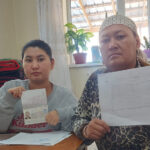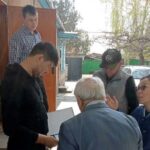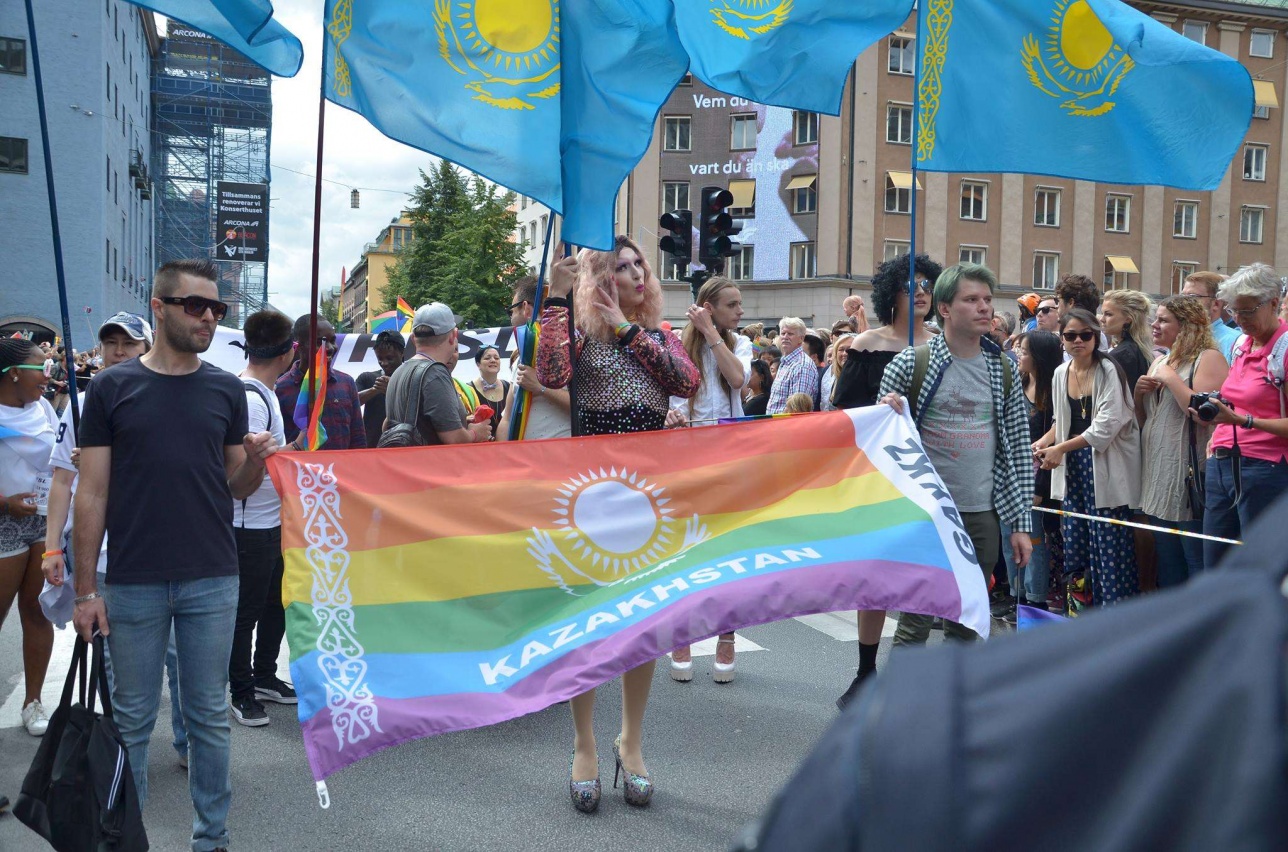The city of
Workers are mainly organized into a trade union that in the past was state sponsored and in recent times has done little to represent the workers’ interests. The workers’ patience however began to run out last year. A number of groups of workers began protests over the level of wages and the abysmal health and safety record in the company.
Of particular significance are the events at the second enrichment plant where workers threatened to go on strike over pay rates in the early summer of last year. Management met their demands with a combination of repression and concessions. In the end, a pay rise of 100% was conceded – a reflection not of management’s generosity but a recognition that wage rates were so low in the first place that they could be increased dramatically and not significantly affect company profits.
The workers, unhappy that their trade union had not supported them adequately, decided to change their representatives. Saula Seidakhmetova, who later joined the Socialist Movement Kazakhstan, was elected as chair of the union. This is the first time when workers had elected a leader whose candidacy had not been agreed by the management. Management was furious. Petty disciplinary charges were lodged against activists. At a press conference they claimed that the election of a new trade union leader was the business only of the workers in their trade union but the new union leadership was evicted from their office on factory premises. During the same press conference, it was revealed that management had issued an order to establish a new trade union, with instructions sent to line managers to ensure that workers were “encouraged” to join their union. Pressure on Seidakhmetova was so great she eventually resigned her position.
Workers were however angry that the management had put so much pressure on their union. They decided to organize for a recall conference, so that run the affairs of their own trade union in a democratic way Seidakhmetova could be restored to her rightful post. They want the right to, in their interests. They insist that there should be no repression used against their unions.
Berik Zhagiparov , editor of ‘Molodozhnaya gazeta’, a member of the Socialist Movement Kazakhstan, and firm in his support for workers’ rights, is now also facing repression in the same city. His paper’s license has been withdrawn and he is unable to print the paper in the city. It was arranged to print the paper elsewhere. Going to the train to meet its delivery, however, he found the train guards nervous and frightened. They explained the paper had been “arrested” from the train. As this was being explained, plain clothes police approached Berik and detained him for questioning.
Workers in the city, with the support of the Socialist Movement, are organizing a day of action on the 9 February against KazakhMys, with the authorities demand that it backs off from pressuring the trade union and allows it to elect its own representatives.
Importantly, the new global trade union federation, ‘IndustriAll’, which unites the international federations of chemical, energy, mine, general workers and metalworkers, has also written to the company’s board of directors demanding they withdraw their anti-union tactics. They stated “If the interests of the union are ignored, IndustriALL Global Union will use the international mechanisms for defending union rights, and will also call the affiliates in the
(See http://www.industriall-union.org/copper-company-busts-union-in-kazakhstan).
Significantly, at least three senior Board members are British and two are Australian. These include, ‘The Right Honourable, The Lord Renwick of
SOURCE:

















